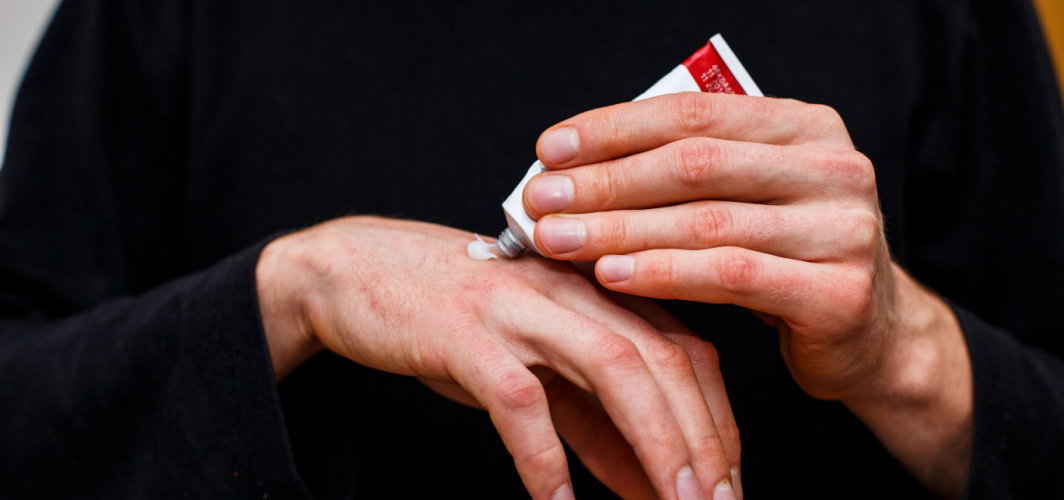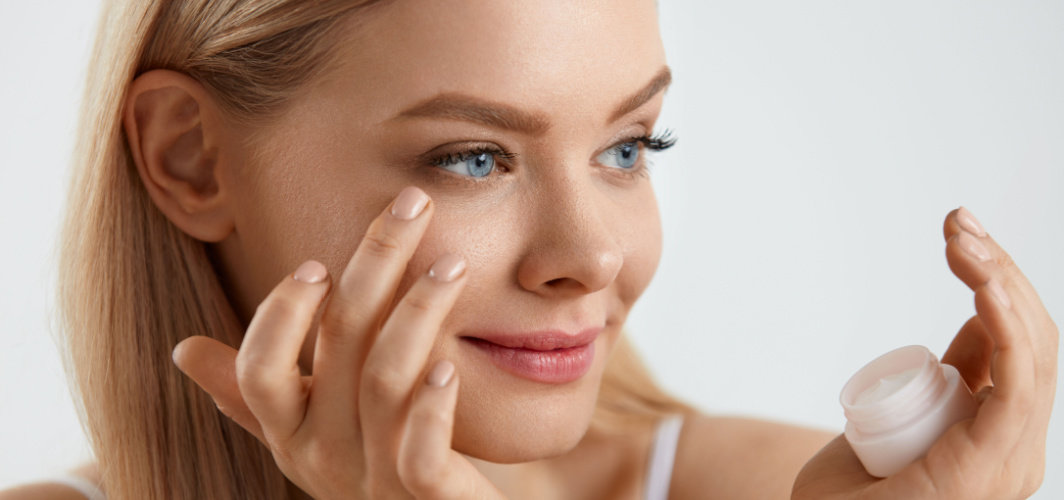- Home
- Blog
- General Health
How To Protect Skin From Air Pollution?
General Health
How To Protect Skin From Air Pollution?
By Apollo Pharmacy, Published on- 13 November 2024, Updated on -13 December 2024
Share this article
0
0 like

As climate change intensifies, pollution has become a concern for everyone, no matter where we live. Our skin, acting as the first line of defence, is one of the organs most affected by declining air quality. Research shows a strong link between pollution exposure and skin issues such as premature ageing, hives, acne, and inflammatory conditions like eczema. Protecting your skin from these harmful effects is crucial. Read on to discover some of the best ways to safeguard your skin from air pollution.
How Does Air Pollution Affect Your Skin?
Pollutants can penetrate the skin's cell membranes and enter the body, triggering oxidative stress by depleting natural antioxidants. Normal metabolic functions and inflammation generate free radicals, which are typically neutralised by antioxidants to prevent damage. The body usually maintains a balance between these antioxidants and free radicals. However, external factors like pollution can disrupt this balance. Continuous exposure to pollutants produces free radicals while depleting antioxidants like vitamins C and E, leading to inflammation and damaging the skin’s protective barrier. Environmental pollution has been linked to skin ageing, contributing to issues like wrinkles, sun spots, and moisture loss.
Which Pollutants Harm Your Skin?
Some common pollutants that can harm the skin include:
- Ozone (O3): Ground-level ozone forms when nitrogen oxides react with volatile organic compounds under UV exposure.
- Particulate Matter (PM): Fine particles like PM2.5 in the air can cause oxidative stress and inflammation, contributing to skin ageing.
- Nitrogen Oxides (NOx): Produced by vehicle emissions and industrial processes, these gases are harmful byproducts of combustion.
- Polycyclic Aromatic Hydrocarbons (PAHs): Released from incomplete combustion of organic materials such as fossil fuels and tobacco smoke, which can accelerate skin ageing.
- Volatile Organic Compounds (VOCs): Emitted by household products like paints, cleaning supplies, and personal care items.
- Cigarette Smoke: Contains chemicals that can degrade skin proteins like collagen and elastin.
- Heavy Metals: Pollutants like lead and mercury in the environment can irritate the skin, causing rashes and other issues upon contact.
- Indoor Air Pollutants: Poor indoor air quality from cooking, heating, and limited ventilation can negatively impact skin health.
Anti-pollution Ingredients to Look for in Skincare Products
Many skincare products and brands now promote themselves as "anti-pollution," but the term lacks regulation within the industry. Instead of focusing on this broad label, it’s more effective to look for specific ingredients that can help address pollution's impact on the skin. Pollution leads to oxidative stress and the formation of free radicals, so antioxidants play a crucial role in protecting the skin. They neutralise free radicals before they can damage skin cells. So, applying antioxidants like vitamin E, vitamin C, and ferulic acid to skin cells helps prevent pollution-related damage. Other ingredients that help combat pollution include:
- Niacinamide
- Retinol (vitamin A)
- Ferulic acid
- Resveratrol
Since pollution can also dry out the skin, incorporating moisturisers such as ceramides and hyaluronic acid is beneficial. These ingredients not only hydrate the skin but also reinforce the skin’s barrier, making it harder for pollutants to penetrate and cause oxidative stress.
Tips to Protect Skin Against Air Pollution
Here are some helpful tips to follow for safeguarding your skin against damage caused by air pollution.
1. Restrict Outdoor Activities During Poor Air Quality
Reducing outdoor activities when air quality is poor is one of the best ways to protect your skin from pollution. Avoid spending time outside during high pollution periods, and if outdoor activities are necessary, aim to go out early in the morning when pollution levels are generally lower. Steering clear of busy, high-traffic areas can also help minimise your exposure to harmful pollutants.
2. Keep Your Skin Clean
Maintaining clean skin is essential to remove dirt and pollutants that can clog pores and cause skin problems. Use a gentle facial cleanser with hydrating ingredients like aloe vera and cucumber to effectively clear away dirt, makeup, and impurities without drying out your skin. For best results, cleanse your face twice daily—once in the morning and again before bed.
3. Use Sun Protection
Sun exposure and pollution both contribute to free radical damage to the skin. UV rays generate free radicals directly and can also intensify the oxidative stress caused by pollutants. For this reason, it's crucial to include effective sun protection in any anti-pollution skincare routine, such as:
- Applying sunscreen with a minimum SPF 30 daily, even when indoors or on cloudy days
- Wearing protective clothing, such as UV-protective sunglasses and wide-brimmed hats
- Seeking shade during peak sun hours, typically between 10 AM and 2 PM when UV radiation is strongest
4. Use Skincare Products Packed with Antioxidants
Adding antioxidants to your skincare routine can help counteract the oxidative stress from pollution. Ingredients like vitamin E, vitamin C, and niacinamide work to neutralise free radicals, protecting the skin from environmental damage. Using these antioxidants daily aids in repairing existing damage while also fortifying your skin's defences against future harm.
5. Load up on Antioxidants Through Diet
Along with using antioxidant-rich skincare products, include antioxidant-rich foods in your daily diet to boost your skin’s natural defences. A balanced diet with foods like leafy greens, berries, and nuts, which are packed with antioxidants, can support skin health and resilience.
6. Moisturise Regularly
Moisturising regularly helps reinforce the skin barrier, reducing the chances of air pollutants penetrating and causing oxidative stress. Choose moisturisers with humectants like hyaluronic acid or glycerin and retain skin moisture and support barrier health. Ceramides are also excellent ingredients to further strengthen the skin’s protective barrier.
7. Aim to Reinforce Your Skin’s Barrier
Choose products with ingredients that repair and support your skin's natural barrier. Ingredients like hyaluronic acid, ceramides, aloe vera, and centella asiatica help calm inflammation and reinforce the skin barrier, making it more resilient against pollutants and environmental damage.
8. Maintain a Healthy Lifestyle
Your general health greatly affects your skin's resilience to pollution. Sufficient sleep, regular exercise, and an antioxidant-rich diet can enhance skin health by strengthening its natural barrier. These habits improve metabolism and aid in flushing out toxins from the body.
9. Exfoliate Periodically
Incorporate gentle exfoliation into your skincare routine to clear away dead skin cells and unclog pores, reducing the risk of pollution-related breakouts. Exfoliation also supports skin regeneration, helping in strengthening the skin barrier. Avoid over-exfoliating, as it can increase sensitivity; once a week is generally sufficient.
10. Stay Hydrated
Drinking ample water helps remove toxins and keeps your skin hydrated from within. As previously mentioned, proper hydration is crucial for shielding your skin against pollution and supporting its health. Aim to drink at least eight glasses of water daily to promote a healthy, glowing complexion.
Conclusion
Protecting your skin from the harmful effects of air pollution is essential for maintaining its health and preventing long-term damage. By incorporating strategies such as using antioxidant-rich skincare products, maintaining proper hydration, and following a healthy lifestyle, you can reinforce your skin’s defences against the oxidative stress caused by pollutants. Additionally, simple steps like keeping your skin clean, using sun protection and minimising outdoor exposure during poor air quality can further safeguard your skin from environmental harm. With the right skincare routine and mindful habits, you can effectively protect your skin from the damaging effects of air pollution and promote a radiant, healthy complexion.
Services
General Health
Leave Comment
Services
Recommended for you

General Health
How Does Soframycin Cream Aid In Infection Control?
Discover how the potent ingredients in Soframycin Cream effectively combat infections. Explore their role in infection control for healthier skin.

General Health
Ingredients To Look For While Buying Skincare Products?
Discover the key ingredients to look for when purchasing skincare products. Learn about new technologies, guidelines, and lifestyle factors that can help you make informed choices for healthier skin.
.jpg?tr=q-85)
General Health
How to Relieve Chronic Pain?
Discover effective ways to relieve chronic pain through treatments, lifestyle changes, and self-care strategies. Learn how to manage symptoms and improve your quality of life.
Subscribe
Sign up for our free Health Library Daily Newsletter
Get doctor-approved health tips, news, and more.

